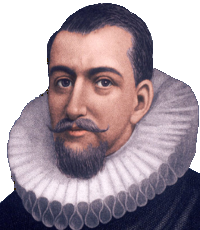Richard Coeur-de-lion, or “Lionheart,” 1157-1199 CE, was an English king yet he is famous above all as one of the commanders of the Third Crusade. In 1099, during the First Crusade, the Europeans had captured Jerusalem and established a Christian kingdom there. In 1187, however, the Faranj were decisively defeated at the Battle of Hattin and Jerusalem retaken by the Muslims. It was to relieve them, and to try to get Jerusalem back, that Richard set off for the Holy Land. On the way there he occupied Sicily in 1190, Cyprus in 1191, and once he arrived he retook the city of Acre. The Faranj established a new kingdom here which was to last until 1291. [Read more: “Rabban Bar Sauma, Mongol envoy to the pope“] But that was as far as Richard got. The various European commanders were quarreling with each other; they lacked the soldiers and the patience required for a successful campaign. Despite repeated attempts, Richard never recaptured Jerusalem.
The person who more than anyone else stopped the Europeans was An-Nasir Salah ad-Din Yusuf ibn Ayyub, 1137–1193 CE, known as “Salah ad-Din” or “Saladin.” Saladin was of Kurdish origin but had made his career with the Fatamids in Cairo where he rose to become vizir. In 1171, he turned on his employer and established a dynasty of his own, the Ayyubids, 1171-1270 CE. It was Saladin and the Ayyubid armies that defeated the Crusaders at Hattin, took Jerusalem back, and successfully defended themselves against the onslaught of the Faranj.
Richard Lionheart and Saladin are the original “knights in shining armor.” Despite an abundance of high-quality scholarship on the Crusades it is difficult to separate facts about them from all the fiction. Walter Scott, the British author, published a highly romanticized account of their rivalry in 1825, and in the twentieth-century Hollywood has produced a number of similar versions. According to the Europeans, Richard brought Christianity and civilization to the Middle East. According to the Arabs, Saladin defended Muslim lands against a barbarian invasion. Reading, and fantasizing, about them ever since, political leaders both in Europe and in the Muslim world have found their respective role models.
External links:
- Beha Ed-din, “The Life of Salaman”
- Carole Hillenbrand, The Crusades: Islamic Perspectives, 2012
- Charles J. Rosebault, “Saladin: Prince of Chivalry,” 1930
- Real Men in Islam, “The story of Salahuddin Al Ayyubi”
- Rich Lawson, “Richard and Saladin: Warriors of the Third Crusade”
- Ridley Scott, “Kingdom of Heaven,” 2005
- Unesco, “Two citadels in Sinai from the Saladin period (Al-Gundi and Phataoh’s island)”
- YouTube, “The Third Crusade: Saladin & Richard the Lionheart Documentary”

